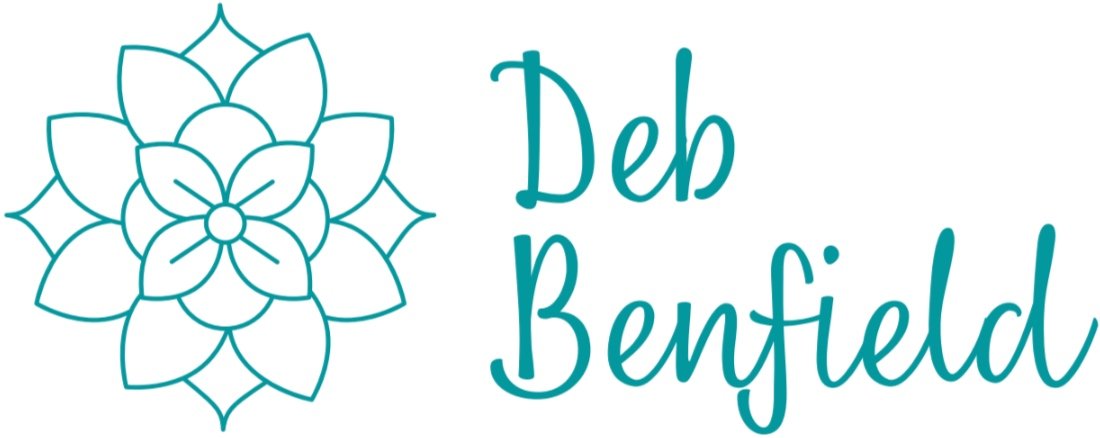There is Another Way: Part Two of Disordered Eating is Normalized in Midlife Women
First, thank you for being here and for your interest and comments on last week's newsletter! We are a mighty sassy group of women who are sick and tired of the fear-mongering and oppressive beauty standards we face as our bodies age. I'm here for it and I am glad you are here too!
Untangling yourself from anti-aging and diet/wellness culture is an empowering process that creates more peace in your life.
In Part Two of this conversation, let's talk about a response to the changes you experience in your aging body that does no harm and contributes to your well-being.
Before I get into that, I want to acknowledge your vulnerability to anti-aging and diet/wellness culture. I will write more about this in the coming weeks because these are complex, nuanced issues.
Please remember that as a midlife+ woman, you are the target of both the anti-aging and diet culture industrial machines. The insidious pressure leaves you feeling that "you should be working on your body" due to:
Health anxieties
Longevity and anti-aging messages
Body changes that run counter to the culture’s body hierarchy
Fear of losing relevance/a sense of belonging
Feeling pushed to the margins (especially if you already have a marginalized identity)
Loss of diet/fitness community
Loss of diet/fitness identity
Fear of judgment-"She's really let herself go."
I'm going to break these down in future newsletters. I mention these common experiences now to remind you that:
You are not alone.
If you feel pulled into diet/wellness culture, it is not your fault.
Please offer yourself grace and practice self-compassion.
There is Another Way
As you begin to step away from diet culture, you may find yourself reacting to your past hunger and deprivation by experiencing cravings. This is normal and to be expected. The intensity and duration of this phase is likely affected by how long you have been at the diet game and the severity of your restriction and exercise.
Your body experiences hunger as a threat (because it is), and your brain experiences deprivation as punishment (because it is). So understandably, your body wants to protect you from the threat of hunger by sending urges to eat plenty. Your brain wants to heal the harm of the punishment by sending you cravings for foods you've been missing.
Since one of the primary messages you've received from diet culture is that you can't be trusted, this phase may feel overwhelming. I recommend increasing your self-care during this time to
regulate your nervous system
connect to your body
feel less judgmental
feel less reactive to what you are experiencing
You may or may not feel you can access these self-care practices in your toolkit. That's okay!
The good news is the limiting beliefs you've learned from diet culture can be unlearned, and these new, more supportive skills can be learned. This is a good time to start a true self-compassion practice, for real!
So, you want this process to go something like this:
Diets ----> Delicious ----> Discernment
What do I mean by the term "Diets"? It means following rigid rules learned from external sources that ignore your food preferences and teach you not to trust your own body's data, like hunger. You learn to override and ignore your needs and instincts. You are working hard to "control" your eating and body.
What do I mean by the term "Delicious": allowing yourself to experience pleasure and satisfaction when you eat by including foods you have been deprived of while following diets.
What do I mean by the term "Discernment": putting effort into developing a caring relationship with your body through eating nourishing and satisfying foods. The focus shifts from controlling and following external rules to an internal connection with your body, encouraging curiosity and compassion. The ultimate goal is to heal your relationship with your body and reclaim or cultivate trust in your body and yourself.
And you know change doesn't go in a straight line!
You might decide to jump off the diet train and find yourself craving and feeling out of control, so you run back to the familiarity of your diet rules. Part of you knows better, but trying to leave the false security of following diet rules can feel too overwhelming. That's okay too. You may not be ready or not have the energy or support needed for the process just yet. So you may experience something like:
Diets----> Delicious ----> Diets
Or, you might jump off the diet train, start allowing yourself to eat satisfying foods (symbolized here with the word "delicious"), and experience resistance to proceeding onto discernment. Getting stuck here can be due to many things. Perhaps a part of you is protecting you from the risk of discernment becoming another diet! Maybe you are not ready or don't have the energy or support needed for the process quite yet. So you may experience something like:
Diets ----> Delicious (drop anchor here)
Discernment requires reconnection with your body, honoring your body's needs and instincts, protecting yourself from the anti-aging and diet noise, and prioritizing caring for yourself over the need to control your body and the changes you are experiencing.
I'm not going to lie; this process can be challenging!
And the payoff is transformative. Over time, you are healing your relationship with food, exercise, and your body so that you feel more powerful in your life. You also feel more connected and respectful of your body, which is priceless at this time of your life. You will likely feel more present in your life and relationships, more at peace, and experience greater vitality. Diets are oppressive and a drag!
You deserve to feel free, powerful, vital, and at peace, especially now!
Please let me know if you have questions or topics you would like me to address in upcoming newsletters.
I am so glad you are here!
Love,
Deb
